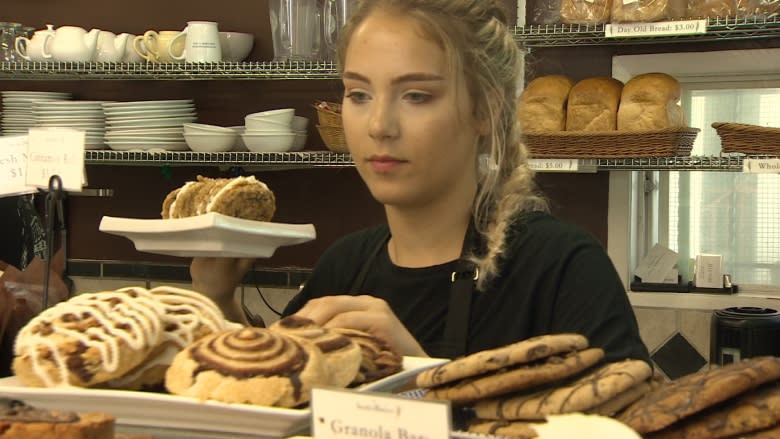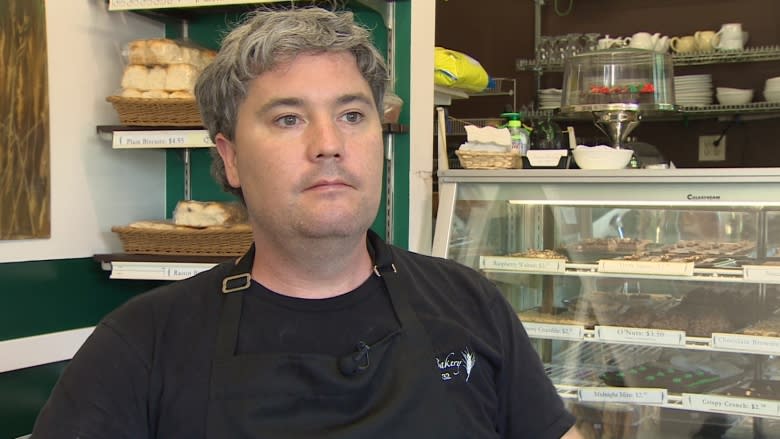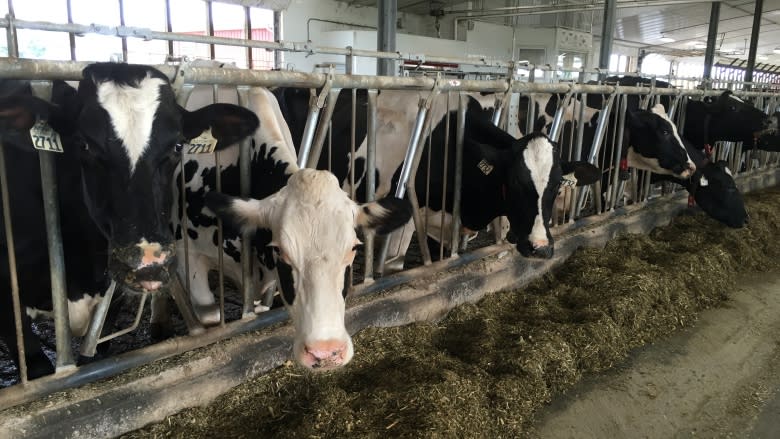Halifax bakery braces for impending hike in butter prices
The owner of a Halifax bakery is bracing for the second price increase by Canada's dairy board this year — this time, to butter and skim milk powder.
"I think certain types of baked goods will just go extinct," says Dennis Evans, who owns Smith's Bakery.
Evans uses recipes from the 1930s that are original to his bakery. But as the costs of raw ingredients continue to rise, particularly for dairy products, he feels an increased financial pressure.
"People think that we get butter cheaper than everyone else, and I actually have to go to grocery stores and buy it when it's on special," said Evans.
"In 50 years is somebody even going to know what butter tastes like, unless they're the higher-end elite?"
But Canadian dairy farmers aren't rolling in revenue either.
The Canadian Dairy Commission's decision to raise prices is an attempt to make up for a drop in farmers' revenue. As of Sept. 1, the base price for butter will go up 2.89 per cent, and the base price of skim milk powder will increase 2.55 per cent.
'It's everything'
"Everybody's costs continue to go up," said John Vissers, a dairy farmer in Stewiacke and an executive member of the Dairy Farmers of Nova Scotia.
"It's everything. It's not just fuel costs. It's fertilizer costs, seed costs, chemical costs, vet costs."
There's also a surplus of milk produced around the world. Because of that imbalance, global prices have weakened.
Canadian farmers also have to compete with U.S. producers of milk protein. According to the U.S. Department of Agriculture, the volume of Canada's imports of U.S. milk protein grew by 10 times from 2011 to 2016.
"When that protein is used, it displaces some protein that we would use. So what we have left is for animal feed [and] is of much less value," said Vissers.
'Always more expensive in Canada'
But why import U.S. milk protein in the first place?
"It's cheaper — much cheaper," said Sylvain Charlebois, a professor of food distribution and policy at Dalhousie University.
He's critical of the overall cost of milk production in Canada.
"When you compare Canada with the U.S., Japan, New Zealand, Australia, the U.K., anywhere, it's always more expensive in Canada."
Discussion needed about rising costs
Charlebois argues that the dairy board imposing higher prices is not the best way to help the Canadian dairy sector become more profitable.
He said there should be an incentive for dairy farmers to do one of two things: "either increase productivity and become more efficient, or exit the industry.
"By increasing prices at farm gate, you're delaying a discussion we need to have amongst ourselves in Canada," said Charlebois. "By adding an extra three per cent [to prices], you're only penalizing Canadian families."
Meanwhile, back on the farm, Vissers recognizes the need to keep finding efficiencies, but says it can't be done without the dairy board's price adjustments to help even out costs for farmers.
Without that balance, Vissers warns the government would have to subsidize them — or farmers could go out of business.
"Where does the food supply come from then?"






